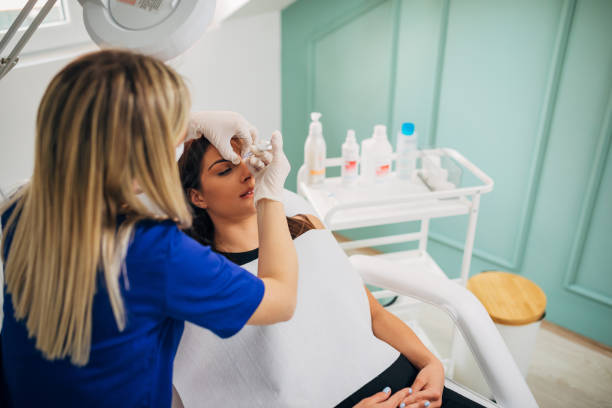Preparing for rhinoplasty surgery can feel overwhelming, but understanding the key steps and what to expect will make the process smoother and less stressful.
What Is Rhinoplasty and Why Is Preparation Important?
Rhinoplasty in Riyadh (عملية تجميل الأنف في الرياض), commonly known as a nose job, is a surgical procedure designed to reshape or improve the function of the nose. Whether for cosmetic reasons or to correct breathing difficulties, proper preparation plays a crucial role in ensuring the best possible outcome. Preparation not only helps the body heal efficiently but also reduces the risk of complications during and after surgery.
Understanding the Importance of Proper Consultation
One of the first and most important steps before undergoing Rhinoplasty in Riyadh is having a thorough consultation with a qualified surgeon. This session allows you to communicate your goals, express any concerns, and understand the surgical process in detail. Clear communication helps set realistic expectations and provides an opportunity to discuss your medical history, allergies, and any current medications.
Necessary Medical Evaluations and Tests Before Surgery
Before the surgery date, some medical evaluations may be required to assess your overall health. These might include blood tests, a physical examination, or imaging studies of your nose. Ensuring that you are in good physical condition minimizes risks such as infections or adverse reactions to anesthesia, contributing to a safer procedure and faster recovery.
Lifestyle Changes That Improve Surgical Outcomes
Preparing for Rhinoplasty in Riyadh often involves making temporary lifestyle adjustments. You may be advised to stop smoking, avoid alcohol, and discontinue certain medications or supplements that increase bleeding risk, such as aspirin or anti-inflammatory drugs. Following these guidelines helps reduce complications and supports optimal healing.
What to Expect on the Day of Surgery
On surgery day, it’s important to arrive with a clear understanding of the timeline and procedure. Typically performed under general anesthesia, rhinoplasty may take several hours depending on the complexity. Following instructions about fasting and medication administration ensures your safety during anesthesia and contributes to a successful surgery.
Planning for Post-Surgery Care and Recovery
Recovery is a critical phase of the rhinoplasty journey. Preparing your home and arranging support for the first few days can make a significant difference. You may experience swelling, bruising, and discomfort, which gradually improve with proper care. Knowing what to expect in terms of downtime and follow-up appointments helps you manage your schedule around healing.
How to Manage Emotional and Psychological Preparedness
Undergoing any cosmetic procedure, including Rhinoplasty in Riyadh, can carry emotional and psychological implications. It’s normal to feel anxiety or excitement before surgery. Preparing mentally by setting realistic goals and discussing expectations with close friends or a counselor can provide comfort and reduce stress.
Common Misconceptions About Rhinoplasty Preparation
Many people believe that rhinoplasty preparation is limited to physical health alone. However, mental readiness, understanding the recovery timeline, and having a support system are equally important. Dispel myths such as immediate results or painless recovery to approach the process with proper awareness and patience.
Monitoring Symptoms and When to Seek Medical Help
It’s essential to know which signs indicate potential complications after surgery. Symptoms such as severe pain, excessive bleeding, or signs of infection require immediate medical attention. Preparing by understanding warning signs ensures timely intervention and protects your health during recovery.
Final Tips for a Successful Rhinoplasty Experience
In summary, preparing properly for rhinoplasty involves physical, emotional, and logistical planning. Research the procedure, follow your surgeon’s advice, maintain a healthy lifestyle, and arrange necessary post-surgery support. With these steps, you’ll increase the chances of achieving results that enhance your appearance and quality of life.
FAQs
Q: How long before surgery should I stop smoking?
It is generally recommended to stop smoking at least two to four weeks before surgery to improve healing and reduce the risk of complications.
Q: Can I take my regular medications before rhinoplasty?
Discuss all medications with your surgeon. Some medications, especially blood thinners, may need to be paused prior to surgery to minimize bleeding risks.
Q: What should I avoid eating and drinking before surgery?
Typically, fasting is required for 6-8 hours before surgery to ensure safety under anesthesia. Your surgeon will provide specific instructions based on your procedure time.
Q: How soon can I return to daily activities after rhinoplasty?
Most patients can resume light activities within one to two weeks, but strenuous exercise should be avoided for several weeks as advised by the surgeon.









